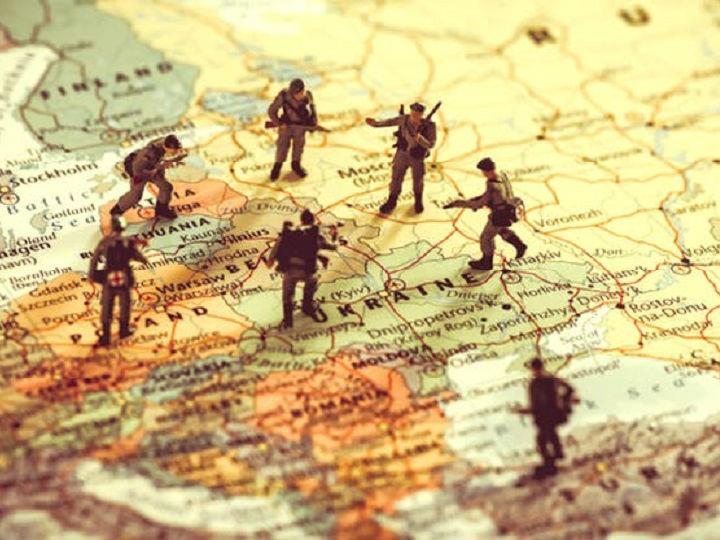by Shada Islam*
Ursula von der Leyen is right: geopolitics must shape the policies of the new European Commission. Europe has to position itself in a world marked by permanent US-China rivalries, persistent conflicts in the Middle East and increased geo-economic competition in Africa. Relations with Europe’s southern and eastern neighbourhood will remain tough.
The EU’s biggest geopolitical test, however, lies in the Western Balkans.
Repairing fraying relations with the region must be a top priority. Not because Russia, China, Turkey and others are competing for power and influence, but because of European peace and stability.
Europe’s credibility, reputation and reliability are at stake. For almost twenty years, EU policymakers sought to keep the six Western Balkan aspirants on track to join but without setting firm deadlines.
Western Balkans governments and people are increasingly impatient and frustrated
The slow and tortuous process, including the negotiation of stabilisation agreements, EU encouragement and surveillance of political and economic reforms and annual publication of ‘progress reports’, has taken a heavy toll. Western Balkans governments and people are increasingly impatient and frustrated.
The region’s leaders, however, have held on to the EU promise that progress in domestic reform and healing the region’s divides would lead to benefits, including the start of entry talks.
Until now. By linking the opening of accession talks with both Albania and North Macedonia – despite the ground-breaking Prespa Agreement ending a 27-year old sensitive name dispute between Skopje and Athens – to EU internal reform and changes in enlargement processes, French President Emmanuel Macron has undermined that pledge.
Albania and North Macedonia are shaken. Serbia, Montenegro, Bosnia-Herzegovina and Kosovo are similarly stirred.
A fresh, authentic and modern narrative about the region’s strengths and weaknesses is desperately required
Rushed membership is clearly not an option. But neither is maintaining the current unsatisfactory status quo. The EU needs to act quickly to repair the damage. There’s no magic bullet, but here are some suggestions.
First, it’s time to reassess the rising geo-strategic importance of the Western Balkans – just as Russia, China and Turkey have done. The EU’s pre-occupation with internal challenges and slow reform in the Western Balkans has meant a loss of momentum in the accession process, with the region falling lower and lower on the EU agenda. The downward slide needs to be corrected, not just through speeches and rhetorical flourishes but through updated policies and actions.
Second, a fresh, authentic and modern narrative about the region’s strengths and weaknesses is desperately required to instil confidence within the Western Balkans but also to change unflattering western European perceptions. True, transformation is not as rapid as many would hope. Old animosities exist. But the Prespa Agreement is proof that old attitudes – and public opinion – can change. Persisting in viewing the region as a ‘burden’ rather than an opportunity is damaging for the EU and the Western Balkans.
Third, while he was wrong to link accession talks with North Macedonia to a reform of the EU’s enlargement process, President Macron is right to ask for a revamp of how the EU conducts accession talks. Time is of the essence, however. The Commission must move quickly to provide clarity on its plans to fine-tune enlargement methodology and especially French calls to make the process ‘reversible’. Two deadlines loom: elections in North Macedonia are set for April 12 and Croatia – as the next EU presidency – has promised to hold a summit with the Western Balkans states in Zagreb on May 6-7.
The EU should send a similarly powerful signal on its continued engagement and interest in resolving key political issues
Fourth, EU policymakers must start thinking about ways of ramping up the EU’s financial engagement in the region, including suggestions that Western Balkans countries should be given access to EU structural funds, starting with the new Multiannual Financial Framework. Such contributions may not match China’s present or future investment plans but they would be proof of increased EU involvement in the region’s economic future. Such funding should be conditioned by countries’ adherence to democracy and the rule of law. State capacity to manage increased funds must also be kept in mind.
Fifth, the EU must lose no time in appointing a special envoy for the Western Balkans under Josep Borrell, the new High Representative and Vice-President of the European Commission. America’s envoy Matthew Palmer is already active in the region. The EU should send a similarly powerful signal on its continued engagement and interest in resolving key political issues, including relations between Serbia and Kosovo. Both Borrell and Oliver Varhelyi, the new Hungarian Commissioner for Neighbourhood and Enlargement, insist they will not be influenced by their national governments’ positions in dealing with the Western Balkans. A dedicated EU envoy will, however, ensure sustained attention for the region
Finally, Western Balkans representatives should be made part of the Conference on the Future of Europe announced by Germany and France to make the EU “more united and sovereign”. The conference, aiming to ensure broad consultation and participation of experts/civil society (academia, think tanks, professional unions and organisations etc.) should include representatives from the Western Balkans. In parallel, the EU should reinforce ties with non-state actors in the region, including civil society groups as well as local authorities, business leaders, women activists, young people and students.
*Director of Europe and Geopolitics at Friends of Europe
**first published in: www.friendsofeurope.org




 By: N. Peter Kramer
By: N. Peter Kramer
